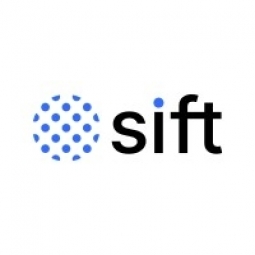Download PDF
Excellent user experience, but not for fraudsters
Technology Category
- Analytics & Modeling - Machine Learning
Applicable Industries
- Telecommunications
Applicable Functions
- Sales & Marketing
- Business Operation
Use Cases
- Fraud Detection
Services
- Data Science Services
The Challenge
SEOClerks, a marketplace for SEO and other web-related services, was facing a significant challenge with fraud. Their approach to fraud prevention was largely reactionary, with fraudulent accounts being banned after a chargeback was received. However, these users would often return and create new accounts to continue their fraudulent activities. Despite having an IP-based fraud-detection tool, SEOClerks was still experiencing various types of fraudulent activity, including money laundering, referral fraud, account abuse, and friendly fraud. The main issue was money laundering using stolen credit card or PayPal information. They were unable to identify clear relationships between multiple bad users, and their existing fraud tool didn't provide any intelligence for spotting fraud rings or repeat abusers.
About The Customer
SEOClerks is a unique marketplace that connects buyers and sellers of SEO and other web-related services. The company was founded in 2011 and has hundreds of thousands of registered users. With a global user base, SEOClerks is always looking for new ways to expand their marketplace. This includes offering a lifetime affiliate program and other incentives. They have also expanded the services offered on the marketplace beyond SEO, allowing the community to request or offer any type of service.
The Solution
SEOClerks turned to Sift, a fraud detection vendor suggested by PayPal, to tackle their 4% chargeback rate. They integrated Sift within two days and immediately began seeing results, identifying previously undetected fraud rings that their previous tool had missed. Sift became an integral part of SEOClerks' daily workflow. With machine learning-based intelligence from the Sift Console, the SEOClerks team could easily uncover hidden links between fraudulent buyers and sellers. They used Lists based on custom criteria to quickly analyze high-risk users and decide whether they should be approved or blocked. Sift's machine learning detects repeat offenders immediately, so SEOClerks can automatically ban them, preventing them from placing orders or messaging other users. SEOClerks also uses Sift to dispute chargebacks involving friendly fraud by presenting evidence from Sift to show that the purchase was made by the rightful owner of the account.
Operational Impact
Quantitative Benefit
Related Case Studies.

Case Study
Vodafone Hosted On AWS
Vodafone found that traffic for the applications peak during the four-month period when the international cricket season is at its height in Australia. During the 2011/2012 cricket season, 700,000 consumers downloaded the Cricket Live Australia application. Vodafone needed to be able to meet customer demand, but didn’t want to invest in additional resources that would be underutilized during cricket’s off-season.

Case Study
SKT, Construction of Smart Office Environment
SK T-Tower is the headquarters of SK Telecom. Inside the building, different types of mobile devices, such as laptops, smartphones and tablets, are in use, and with the increase in WLAN traffic and the use of quality multimedia data, the volume of wireless data sees an explosive growth. Users want limitless Internet access in various places in addition to designated areas.









